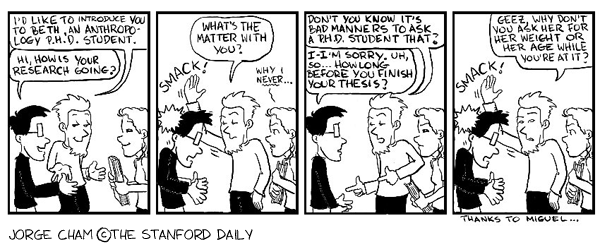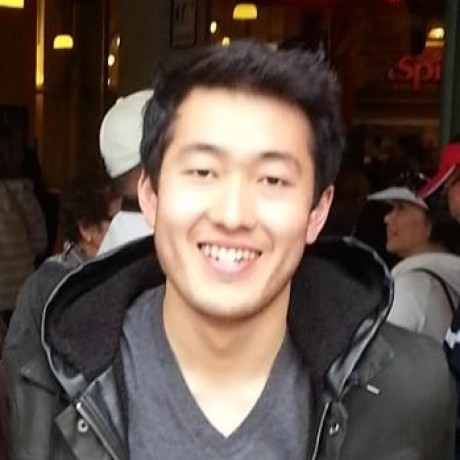How much longer until you graduate?
Have you ever had that awkward moment with a PhD student, where someone asks:
How much longer until you graduate? Do you know what you'll do after school?
The student hesitates to answer, or worse, bolts in the other direction. For the majority of people who will never get their PhD, I'll give my explanation for the reason why. Disclaimer: this opinion will be heavily biased towards PhD's in computer science and may not apply to other fields.

When most people think about school, they usually imagine the type of experience one shares in grade school or a 4-year college.
- School has a finite length: 12 years for grade school, 4 years for college, 1-2 years for a masters
- You pay to be educated (either through tuition or taxes)
- Graduation requirements involve a certain grade in a minimum number of courses
In contrast, PhDs
- Take anywhere between 3 to 10+ years to complete
- Your professor pays your tuition and you earn a stipend that is enough to be self-sufficient
- Graduation requirements also include a thesis.
It's this last point that really makes the difference. A thesis is essentially a 100+ page book that all PhDs need to write in order to graduate. Theses can vary a lot in style, format, and content, but all theses must have a novel thesis statement that must be proven through research, study, and experiments.
So what is novel? That question has led all grad students to cry at least two ramen cups full of tears. Some grad students quit before they figure it out. Some theses go on to change the world. Most are just barely novel at all, but take too many years to crank out.
In addition, grad students must learn to solve the problems with little to no guidance. Sometimes, the student has to literally invent the science and techniques necessary. It can be a painfully lonely path and at the root there is often a lot of insecurity. Most grad students don't know exactly how long it will take.
So what should you do when you see a grad student? As with any goal where the path is long and complicated, just show support and interest. Instead of asking about line items on a resume (e.g. "what have you been up to?"), engage in thoughts, ideas, and feelings (e.g. "what have you been most excited about lately?"). The answer will be 10x more interesting to you, 10x easier to answer for the student to answer, and generally lead to better understanding. They might even thank you for it in their next therapy session.
